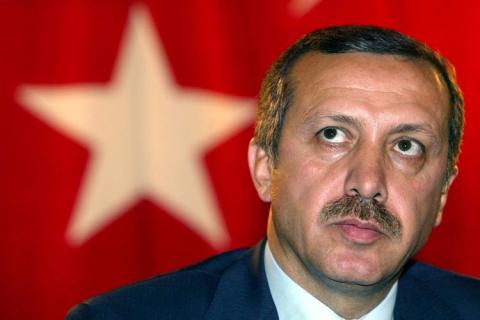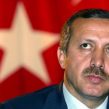
Erdogan Survives the WikiLeaks Challenge
Publication: Eurasia Daily Monitor Volume: 7 Issue: 226
By:

Since the release of the US diplomatic cables, “WikiLeaks” has been affecting various aspects of Turkish domestic and foreign policies. As the country accounts for a large share of the cables, Turkey has witnessed a heated debate on the subject. While various media outlets broadcast programs on the documents released so far, the information also provided new ammunition for fierce political debates among political parties.
One immediate implication of this development was that Turkish politicians or analysts have been expressing reservations about exchanging views with US diplomats in the future. The move towards distancing US diplomats, which is also the case for many other countries, is understandable, after the disclosure of confidential cables demonstrated that US diplomats reported to their superiors all sorts of communications with their local contacts and at times used very harsh language (Cihan, November 30).
In this intensive debate, one line of argument offered a conspiracy-based reading of the cables, arguing that Julian Assange was in fact part of an American-Israeli intelligence operation. It has been maintained that this entire episode, especially the “selective” revelations of documents that portray various ministers or government advisors in a negative light, was a deliberate attempt to discredit the ruling AKP government’s popularity (www.sde.org.tr, December 11).
Such views are occasionally aired by members of the ruling AKP. While some within the AKP claimed that this was a psychological operation to damage Turkish-American relations or punish the government for its independent foreign policies, the chief advisor to Prime Minister Recep Tayyip Erdogan, Yalcin Akdogan, went as far as implying that Israel might be behind this development (Star, December 5; www.ntvmsnc.com, December 6). Deputy Prime Minister, Bulent Arinc, warned against reaching such hasty conclusions without any concrete evidence (Anadolu Ajansi, December 5). Nonetheless, those views still find support in the media debates on the subject.
Other than various negative remarks about some government officials, perhaps, the most controversial part of the cables were the allegations about Erdogan. In particular, a report, dated December 30, 2004, sent by Eric Edelman (who served as US ambassador in Ankara between August 2003 and June 2005) referred to speculation that Erdogan might have up to eight secret accounts in Swiss banks and Erdogan’s explanations about the source of his wealth were dubious. Other cables also included speculation about the deputy head of the AKP, Abdulkadir Aksu, including his alleged involvement in heroin trafficking and corruption. Some cables contained very critical remarks about Arinc, which were interpreted as insults.
These and other related accusations prompted the main opposition Republican People’s Party (CHP) leader, Kemal Kilicdaroglu, to capitalize on the occasion, and reignite the debate concerning the allegedly corrupt practices of Erdogan government. However, Erdogan managed to overcome this threat easily. Erdogan wasted no time in inviting the CHP or the Turkish media that published the cables to prove those allegations about himself or his ministers or bureaucrats. If Kilicdaroglu were to prove that he had one penny in Swiss banks, he would resign, Erdogan claimed. “Will you resign as well [if the opposite is true]?” Erdogan challenged his counterpart (Anadolu Ajansi, December 1).
Obviously, such claims about Erdogan were based on hearsay or gossip among the political or media circles. Short of any concrete evidence the opposition could furnish, thus, Erdogan used the occasion to reiterate his criticism that the CHP and other opposition groups were employing dirty tactics to taint the successful track record of his government (Cihan, December 10). Moreover, by highlighting many of the cables which are based on unsubstantiated information, Erdogan gained a tactical advantage and deflected attention away from other cables that might have weakened his position. Erdogan, overall, managed to turn the tables and emerge from this crisis stronger in domestic politics.
Erdogan also vowed to fight those accusations and invited the US administration to offer an explanation about the content of these documents. Later, Erdogan added that the apology offered by his US counterparts was not enough and the US administration should punish the diplomats who penned “baseless reports, slander and libel” (Today’s Zaman, December 1). “The WikiLeaks panel” assembled at the AKP headquarters recently completed its work. The panel examined the legal avenues under domestic and international law and eventually the AKP might move to file individual lawsuits about the specific cases of “slander” or ‘insults’ committed by US diplomats (ANKA, December 12).
Some analysts and AKP officials preferred to downplay the extent of the negative language about the Turkish government, arguing that they were posted from Ankara during the Bush administration, as Turkish-US relations experienced many crises. They refer to the influence of the neo-conservatives in shaping US thinking on Turkey. Some also claimed that the diplomats who wrote those cables were incapable of understanding Turkey, referring to more balanced reports written, for instance, by former US Ambassador, Ross Wilson (Today’s Zaman, December 12). Nonetheless, it is important to note that as late as February 2009, US diplomats in Ankara wrote cables that claimed Erdogan’s friends were benefiting from Turkey’s business deals with Iran.
Commenting on the implications of the WikiLeaks for Turkish-US relations during a recent trip to Washington, Davutoglu also preferred to downplay the issue, arguing that those negative remarks reflected an inability to comprehend the transformation of Turkish foreign policy. Davutoglu stressed that irrespective of the views expressed in the diplomatic cables, his true interlocutors are President, Barack Obama, and US Secretary of State, Hillary Clinton, and they have very favorable views about Turkey. Davutoglu added that the Obama administration did not take those negative reports seriously, as reflected by Obama’s decision to launch a “model partnership” with Turkey (Anadolu Ajansi, December 1).
Such a joint vision to avoid WikiLeaks spoiling Turkish-US relations was recently reiterated when Obama telephoned Erdogan to discuss the matter. According to White House sources, Obama expressed his regret about the disclosures and the two leaders agreed that it would not disrupt their close cooperation. Turkish sources emphasized that Erdogan expressed his displeasure over gossip and harsh words finding their way into official documents, yet he reiterated his willingness to maintain close relations (Anadolu Ajansi, December 12).




